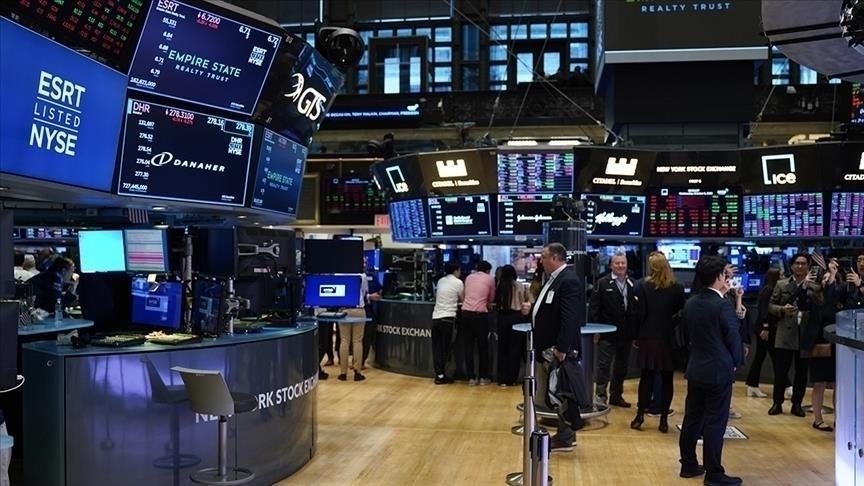ISTANBUL
The New York Stock Exchange closed the last trading day of the week with sharp declines due to weak US economic data and concerns related to inflationary pressures.
Concerns that President Donald Trump’s economic and trade policies may increase inflationary pressures and policy uncertainties continued.
The composite Purchasing Managers’ Index (PMI), which includes manufacturing and services sectors, fell 2.3 points on a monthly basis to 50.4, and recorded its lowest in 17 months.
Citing PMI figures, Chris Williamson, chief business economist at S&P Global Market Intelligence, said the optimistic mood seen among US businesses at the beginning of the year has been replaced by uncertainty related to government policies.
Data released by the University of Michigan showed that consumer confidence fell with tariff concerns; the consumer confidence index revised downward to 64.7 in February.
Consumers’ short-term inflation expectations rose from 3.3% to 4.3% in February, the highest since November 2023, and long-term also rose from 3.2% to 3.5%; it was the largest monthly increase since May 2021.
Existing home sales in the US also fell 4.9% in January.
At the beginning of the week, Trump pointed out that the tariff rate to be applied to automobiles, pharmaceuticals and chips could be around 25%, and he would probably make an announcement on the tariffs April 2.
Trump also stated that he would add timber and forest products to the list of products he planned to impose tariffs on.
The Dow Jones Industrial Average dropped 1.69%, or 748.63 points, to end the day at 43,428.02.
The S&P 500 fell 1.71%, or 104.39 points, to 6,013.13, a historically high level.
The Nasdaq Composite was off 2.2%, or 438.36 points, to 19,524.01.
The VIX Index, also known as the “fear index,” soared 16.28% to 18.21.

